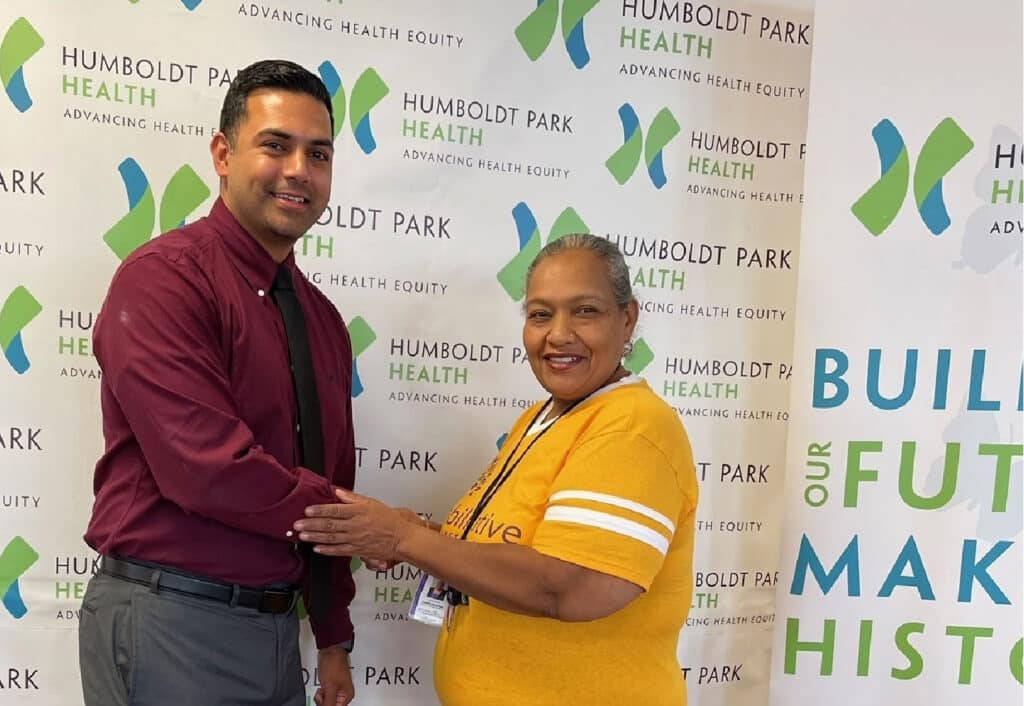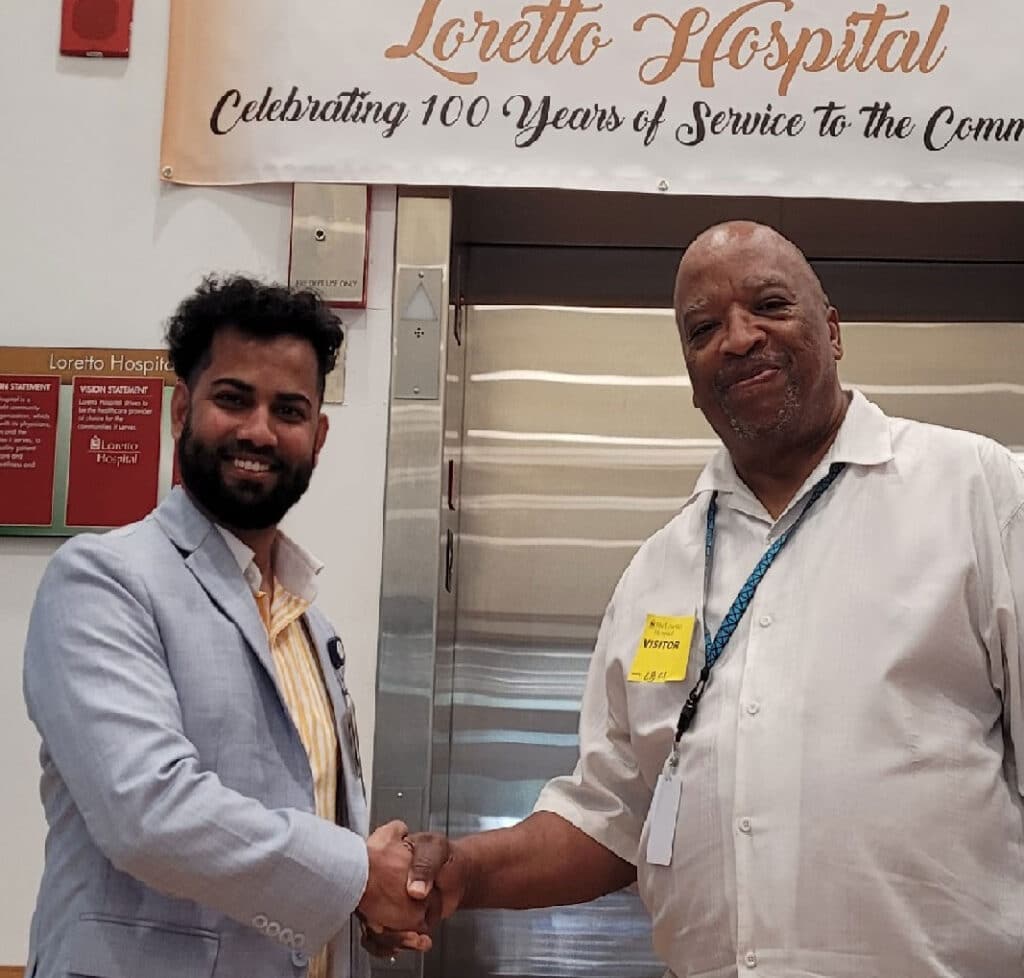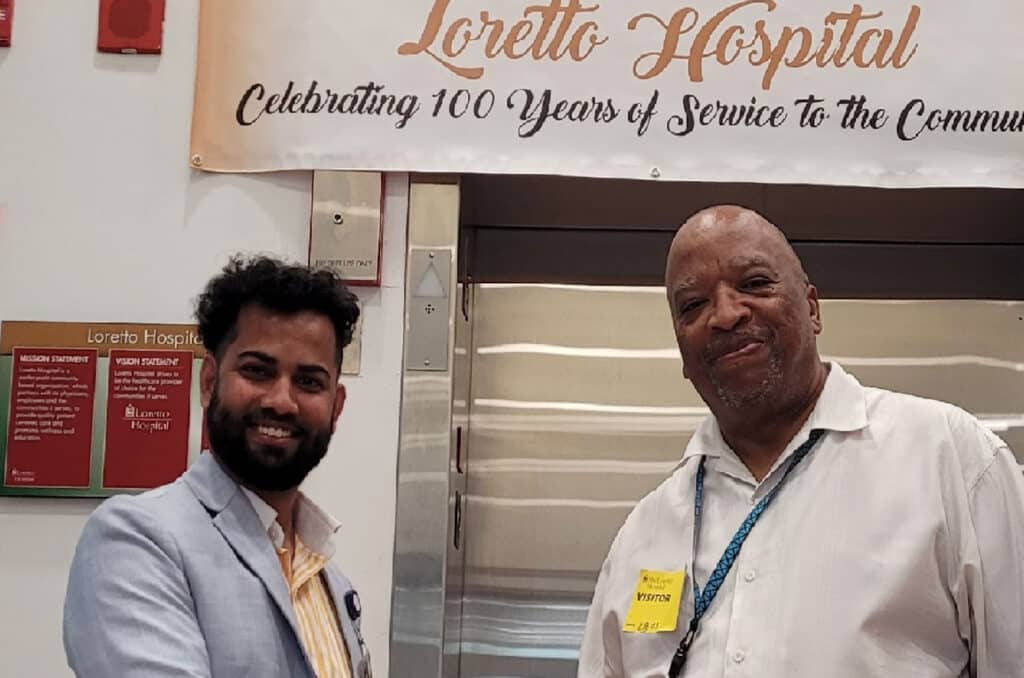CHICAGO, Aug. 15, 2023: A transformation of the way mental and behavioral healthcare is delivered on the West Side of Chicago is underway with the establishment of Collaborative Bridges, a partnership of three safety net hospitals and three community mental health agencies with a combined 300 of years of commitment and history serving West Side communities.

Collaborative Bridges community treatment teams are now supporting the needs of all three hospital partners’ patients with mental health and substance abuse needs as they discharge from hospital-based care. The Collaborative Bridges community teams work to provide patients with a seamless transition of care as they return to their communities and ensure stabilization plans developed in the hospital are continued outside the hospital. Since starting services, 200 patients have been provided with immediate care coordination and therapy supports immediately upon discharge.
Each community organization within Collaborative Bridges is paired with a hospital-based partner to close the gap in service between in-patient and out-patient services. Specifically:
- Community Counseling Centers of Chicago (C4) is paired with Hartgrove Hospital.
- Bobby E Wright Comprehensive Behavioral Health Center is paired with The Loretto Hospital.
- Habilitative Systems Inc. is paired with Humboldt Park Health.
“Our partners recognize how critical it is that we are integrated in our approaches to get at the root causes of the mental health and substance use stressors people face.” said Patrick Dombrowski, Executive Director of Collaborative Bridges. “We have an opportunity to create systems of care that are solution-focused and connected at a community level. When people seek hospital care for behavioral health and substance needs, it is often because they have inadequate community support in their lives. Collaborative Bridges is looking to change that.”

“For many decades, healthcare in the US has been fractured, with hospitals and community-based organizations operating in silos, resulting in systemic issues at the cost of patient care”, said Rohit Yadav, Vice President of Quality and Performance Improvement at Loretto Hospital. “The Collaborative Bridges model addresses those issues through a multi-faceted patient-centric approach that emphasizes total health, including those social determinants of health which have led to inequities and disparities in healthcare.”
Under current systems of care, nationwide, the rate of suicide attempts is 300% higher the week after discharge while only 25% of behavioral health hospital discharges are connected to aftercare supports. Sadly, 40% of all individuals with inpatient psychiatric hospitalizations are readmitted within the following year. To confront this challenge, Collaborative Bridges assigns care coordinators to patients and stays close to them through their entire care journey. Collaborative Bridges pairs community health workers and peer recovery specialists with each patient immediately upon discharge as a key bridge in the continuum of care between the inpatient stay and long-term out-patient treatment programs. The services provided address all the patients’ needs, which can include supports that are traditionally considered outside of healthcare yet deeply impact public health, such as housing, nutrition, social supports, safety, transportation, job training and other social determinants. Due to long wait lists for therapy appointments and to ensure seamless care, our teams provide master level therapists immediately at discharge, continuing the course of treatment established in the hospital, until long-term community care is obtained.

For economically disadvantaged communities of the West Side of Chicago, life expectancy is over 15 years shorter than that of people in high-income areas of Chicago. Due to racial and economic segregation over many decades, there remain acute stressors and chronic diseases on the West Side of Chicago’s largely black and Latinx communities. Compounding the fact that such disparities contribute to more chronic and acute health conditions is the relative unavailability of helping services as compared to North Side Chicago. The work Collaborative Bridges does is intentionally focused on changing these realities and removing obstacles to wellness.
Part of Illinois Healthcare Transformation Initiative Collaborative Bridges is part of the Illinois Department of Health and Family Services’ Healthcare Transformation Collaboratives (HTC). HTC establishes collaboratives of different Medicaid safety net service providers to close gaps. These collaborations, each with their own geographic footprint and clinical focus, are standing up across the State of Illinois, with a focus to find innovative ways to bridge gaps in the healthcare delivery system and increase access to quality healthcare services in underserved communities across Illinois.


